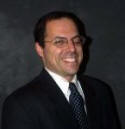Patent Holder Claims Checkmate in Infringement Suit |
|
IMS ExpertServices periodically sends me e-mails that highlight recent key court cases that can significantly affect the effectiveness of expert testimony, both for the plaintiff and for the defendant. You need only scan the headlines I post daily to know the importance of effective legal representation when intellectual property (IP) is being contested. This article by Joshua Fruchter, writing for IMS ExpertServices, reviews a recent patent infringement lawsuit and the contortions used by legal 'experts' to argue whether the designers of a laser-equipped board game knowingly used features of a pre-existing game as a springboard for their product. As pointed out by Mr. Fruchter, the rationale used by the judge in his ruling illustrates the often fine line separating malicious intent from ignorance. Even in the appeal, the final ruling is a case study (pun intended) of subjectively arrived-at conclusions versus objectively arrived-at conclusions. Definitions of "a skilled artisan," "prior art" (a very familiar patent term), and "obviously" seem to be largely at the discretion of the sitting judge. That helps explain why "judge shopping" is so popular in difficult cases. Patent Holder Claims Checkmate in Infringement Suit Posted by Joshua Fruchter, Esq. May 16, 2015 --- Add comments
To invalidate a patent on the ground of obviousness, a defendant must prove that "a skilled artisan would have had reason [i.e., motivation] to combine the teaching of the prior art references to achieve the claimed invention . . . and a reasonable expectation of success from doing so." In the Khet litigation, the "prior art" consisted of an existing patent describing a laser board game with pieces that—critically—did not move during the game and of two game magazine articles describing a video game in which players manipulate images of pieces that fire lasers. While MGA's expert opined that these other games demonstrate certain concepts that made Khet obvious, the Federal Circuit disagreed. Specifically, the court concluded that there was no known "problem" in the board game field at the relevant time that would have motivated a skilled artisan (defined as an individual with a bachelor's degree in mechanical engineering) to combine the concepts of a board game—one that features pieces fixed during play and a video game consisting of images of lasers—into a new game (i.e., Khet)—one that employs real lasers and regularly moving and rotating game pieces on a physical board. More persuasive was Innovention's expert, who criticized MGA's expert testimony as analysis by hindsight. Specifically, Innovention's expert observed that MGA's expert assumed Khet's existence and then worked backward to determine whether the prior art could have supplied the idea for Khet. Innovention's expert also testified persuasively that, in his opinion, a skilled artisan could not have figured out, based on the prior art, how to develop a board game with real lasers and regularly moving pieces. Based on this testimony, the Federal Circuit affirmed the finding of non-obviousness. However, while rejected as a basis to establish obviousness, MGA's expert testimony saved the company from a finding of willful infringement. When testifying at trial, MGA's expert admitted on cross-examination that the prior game magazine articles did not disclose key elements of Innovention's patent—i.e., physical pieces on a physical board. Apparently, this admission had a dramatic effect in the courtroom and seemingly contributed to the finding of willful infringement. However, on appeal, the Federal Circuit observed that, while insufficient to establish obviousness, MGA's expert testimony had established meaningful overlap between the elements of the existing game concepts and those of Khet. Given the small gap between those prior concepts and Khet's, the Federal Circuit held that MGA's defense of obviousness was reasonable and, thus, did not support a finding that MGA had acted willfully (i.e., had "acted despite an objectively high likelihood that its actions constituted infringement of a valid patent"). Do you agree with the Federal Circuit's conclusions? It's striking that the gap between the existing game concepts and Khet's concepts was large enough to preclude a defense of obviousness but small enough to prevent a finding of willful infringement. Quite hard, it seems, to know where to draw the line — which makes patent litigation itself akin to a game of chess. This article was originally published in BullsEye, a newsletter distributed by IMS ExpertServices™. IMS Expert Services is the premier expert witness search firm in the legal industry, focused exclusively on providing custom expert witness searches to attorneys. To read this and other legal industry BullsEye publications, please visit IMS Expert Services' recent articles. For your next expert witness search, call us at 877-838-8464 or visit our website. Other IMS ExpertServices BullsEye and Expert Library Articles on RF Cafe:
Posted June 9, 2015 |
|



